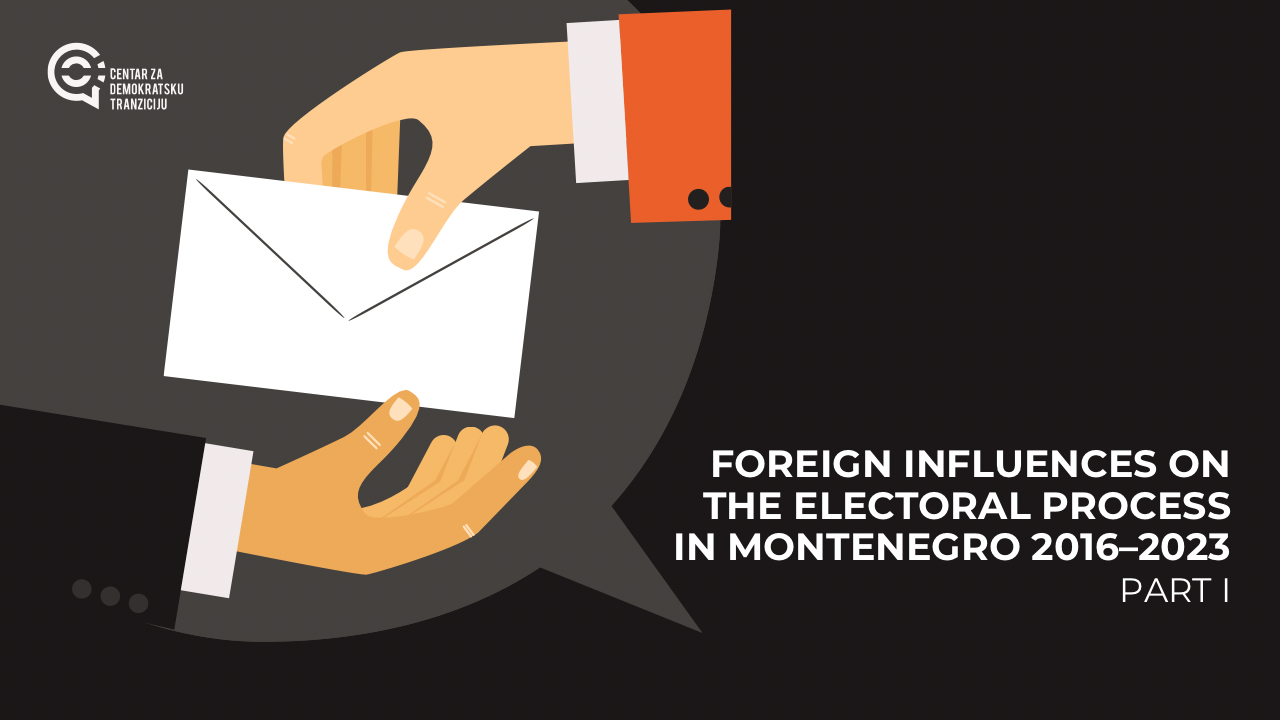Electoral and other laws regulating parts of this process in Montenegro almost do not contain mechanisms for preventing foreign and other illegal interference, which should enable this, the most important democratic institution, to be implemented in line with international standards.
The Center for Democratic Transition (CDT) recorded and publicly reacted to these phenomena through projects of civic monitoring of elections. Now, at the beginning of the long-awaited reform of the electoral legislation, we want to contribute to the understanding of this problem and its better resolution with this publication.
We will address this issue in two publications that will be available to interested parties during the electoral reform. In the first publication, we deal with the most illustrative examples and mechanisms of undermining democratic processes from abroad, while in the second, we will give an overview of some of the mechanisms that can be used to intervene in order to minimize this phenomenon as much as possible.
In the previous eight years, which is the period we cover in this analysis, we have been able to witness a wide range of illicit influences on electoral processes. Montenegro’s citizens were able to witness political influences, campaigns in which more money was apparently spent than was reported, and whose origin goes back to foreign companies or circles close to political elites from the surrounding region, media campaigns from abroad aimed at influencing election processes, and the spread of disinformation and the clear and completely visible interference of religious communities.
Solving this complex problem will not be easy, because the influences we are discussing exist in different segments of the electoral process. An additional challenge in this area is our need to find that, often thin and elusive line, on the one hand, defending democratic processes and preventing foreign influences, and on the other hand, safeguarding the inviolable rights to freedom of expression and political organization, and the free operation of the media.
The key directions in which, in our opinion, electoral reform should move were published in July 2023 in the document titled “35 recommendations for electoral reform”. Through this project, and series of publications we are preparing, our aim is to make our proposals concrete, delve into even deeper analyses, and bolster the success of the forthcoming reform by grounding it in a comprehensive understanding of all the key international standards for a transparent and fair electoral process.
This publication was produced as part of the project “Electoral Reform in Focus: It’s Time!”, which the Center for Democratic Transition (CDT) is implementing in cooperation with the Association for Responsible and Sustainable Development (UZOR) and the Association of Youth with Disabilities (UMHCG), with the support of the European Union, through the EU Delegation in Montenegro. Its content is the sole responsibility of CDT and does not necessarily reflect the views of the European Union.
We remain open to public dialogue related to the content of our publication, as well as to all well-intended criticism and suggestions.
Publication is available here.
Center for Democratic Transition (CDT)


